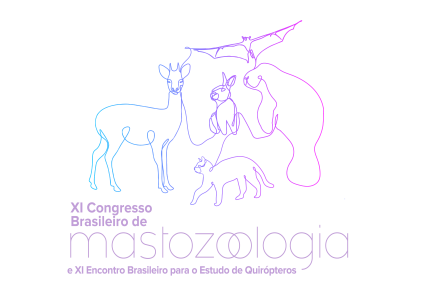Dados do Trabalho
Título:
PRESCRIBED FIRES IN A NEOTROPICAL SAVANNA: A SMALL MAMMAL COMMUNITY RESPONSE
Resumo:
Fire management is considered an important tool to conserve the biodiversity in fire-prone ecosystems. Small mammals are sensible to habitat alteration and are good bioindicators of environmental changes. Herein, we surveyed a small mammal community from the southeastern boundary of Cerrado (Santa Bárbara Ecological Station) between 2017-2020. We investigated the effects of a low intensity prescribed fire event on the species diversity (richness and relative abundance) throughout two experiments - temporal and spatial - at grasslands formations using GLM models. We also evaluated the importance of microhabitat variables related to herbaceous, shrub and tree cover regarding the vegetation recovery after the fire for small mammal diversity. The temporal experiment showed a significant decrease in marsupial species richness and an increase in rodent abundance, mostly represented by open-area inhabitants, after the fire. On the other hand, the spatial experiment provided no differences in community structure between burned and unburned areas. Despite that, in both experiments open-area specialists seem to be favored by fire (e.g., Cerradomys cf. subflavus, Calomys tener), and marsupials negatively affected (e.g., Cryptonanus species). We found that the prescribed fire can affect the small mammal community in a heterogeneous way, depending on species-level features, such as a relationship with vegetation structure. Further analyses regarding species level responses and microhabitat relationships will be done. Prescribed burning of open formations may be needed to maintain open-area species diversity at the boundary of Cerrado.
Keywords: Didelphimorphia; Rodentia; Cerrado; Grasslands; Fire management.
Financiamento:
MM and APC was funded by FAPESP grants #2015/0000, #2018/0000 and #2020/0000, and LOF was funded by CAPES - Finance Code 001.
Área
Ecologia
Autores
Luciana Oliveira Furtado, Marcio Martins, Ana Paula Carmignotto
